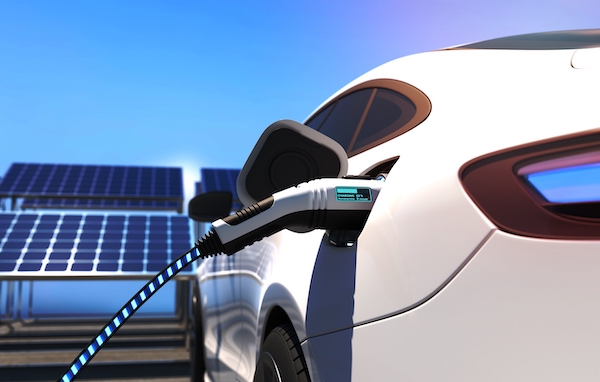 How to Charge Your EV with Solar Panels
How to Charge Your EV with Solar Panels
If you drive an electric vehicle or you’re thinking about buying one, solar panels are a no-brainer. With a residential solar panel installation, you’ll be able to charge your electric car using free energy from the sun, slashing your charging costs. But that’s not the only benefit of solar-powered EV charging. Your solar panels will also send power to your home so you can save on electricity for your whole house.
SouthFace Solar & Electric can pair your EV home charger with solar panels so you can enjoy convenient and affordable at-home EV charging. We are the leading Arizona solar installer with over 35 years of combined experience.
EV Solar Charging: How It Works
Solar panels generate electricity by converting sunlight into electrical energy. The power they produce flows directly into your electric panel and is distributed to your appliances and outlets. Anything that runs on electricity can be powered by solar panels, including your EV.
There are two ways to charge your electric car with solar panels:
Level One Plug-in Charging: All EVs come with a level one charger, which plugs into a standard electrical outlet. Solar can absolutely power a level one charger, and this is a fine option for many EV drivers. However, level one car chargers are slow and can take 40-50 hours to charge your EV to 80% from empty.
Level Two Wall Charging: A level two charger is the best option for at-home EV charging. These chargers require a 240V outlet, but they provide much faster EV charging. With a level two charger, you can charge your EV to 80% from empty in just 4-10 hours. If you commute to work or drive frequently for any other reason, a level two charger powered by solar is the best option.
Benefits of Solar EV Charging
There are many benefits to charging your EV with solar power:
- Cost Savings – Solar power is the most affordable way to charge your EV and can potentially eliminate your charging costs.
- Convenience – Charging your EV at home with solar means you can avoid public charging stations and have access to a charger whenever you need to fill up.
- No fossil fuels – EVs are better for the environment than gas cars, but they still run on fossil fuels to some extent—most grid electricity is generated by burning fossil fuels. With solar panels, you can charge your EV with 100% clean and renewable energy.
How Many Solar Panels Do You Need to Charge an EV?
The number of solar panels you’ll need to charge your EV reliably depends on the type of electric car and charger you have, the amount of sunlight your home gets, and many other factors. In most cases, a small solar array with 5-12 panels will be enough to charge your EV.
SouthFace Solar & Electric can design a custom solar array to meet your needs. We’ll help you decide how much power you need to charge your EV and size your system accordingly to ensure maximum savings.
EV & Solar Tax Credits
Electric cars and solar panels are a match made in heaven. And now, there are federal incentives available to help you pay for both. The Inflation Reduction Act of 2022 introduced two excellent tax credits for electric vehicles and residential solar panels.
- $7,500 federal EV tax credit
- 30% federal solar tax credit (battery storage included)
Related: Guide to the Federal Solar Tax Credit in 2024
Charging your EV with solar power is hands-down the most affordable option—cheaper than grid power and public charging. By installing home solar panels, you are essentially purchasing your fuel in bulk upfront and will pay it off over time. Once you break even on your installation costs, you’ll be charging your car for free!





